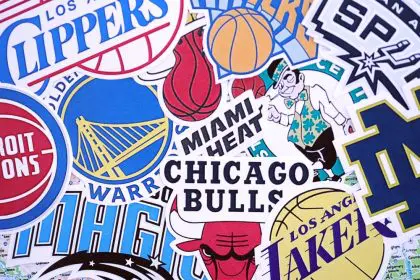Buying sports tickets can be an exhilarating experience, filled with the anticipation of cheering for your favorite team. However, the process can be fraught with risks, as scams are rampant in the ticket-selling industry. This article will delve into the seven big scams to avoid when buying sports tickets, ensuring you have a safe and enjoyable experience.
Fake ticket websites
One of the most common scams involves fake ticket websites that look legitimate but are designed to steal your money and personal information. These websites often mimic the appearance of official ticket vendors, complete with professional graphics and convincing domain names. To avoid this scam, always purchase tickets from reputable sources. Verify the website’s authenticity by checking for secure payment options, reading reviews and confirming its legitimacy through official team or event websites.
Counterfeit tickets
Counterfeit tickets are another prevalent scam that can be challenging to detect until it’s too late. Scammers create realistic-looking tickets that can fool even the most experienced buyers. To avoid purchasing counterfeit tickets, buy from authorized sellers or reputable resellers. If you’re buying from a third party, meet in a safe location and inspect the tickets carefully for any signs of tampering or inconsistencies. Checking the holograms and other security features can also help verify the ticket’s authenticity.
Ticket resale scams
Ticket resale scams often occur when individuals purchase tickets from unauthorized resellers or scalpers. These tickets may be sold at inflated prices or may not exist at all. To avoid resale scams, use only reputable ticket resale platforms that offer buyer protection and guarantees. Be wary of sellers who demand cash payments or refuse to meet in person. Research the seller’s reputation and read reviews from previous buyers to ensure you’re dealing with a legitimate source.
Phishing scams
Phishing scams involve fraudulent emails or messages that appear to be from legitimate ticket vendors or event organizers. These messages often contain links to fake websites designed to steal your personal information or infect your device with malware. To avoid phishing scams, never click on links or download attachments from unsolicited emails. Always navigate directly to the official website by typing the URL into your browser. Enable spam filters and security software to help protect against phishing attempts.
Last-minute ticket scams
Scammers often prey on the desperation of fans looking for last-minute tickets to sold-out events. These scams typically involve selling fake or nonexistent tickets at inflated prices. To avoid falling victim to last-minute ticket scams, plan and purchase your tickets well in advance. If you must buy tickets at the last minute, use reputable sources and verify the seller’s authenticity. Avoid deals that seem too good to be true — they often are.
Social media scams
Social media platforms are a breeding ground for ticket scams, with fraudsters using fake profiles and advertisements to lure unsuspecting buyers. These scams often involve selling counterfeit or non-existent tickets through direct messages or comments. To avoid social media scams, be cautious when buying tickets from individuals or profiles you do not know. Verify the seller’s legitimacy by checking their profile, reading reviews and looking for red flags such as recent account creation or limited activity. Use secure payment methods and avoid transactions that require sharing personal information.
Ticket lottery scams
Ticket lottery scams involve fake lotteries or contests that promise tickets to popular sports events. These scams often require participants to pay an entry fee or provide personal information to claim their “prize.” To avoid ticket lottery scams, be skeptical of any contest or lottery that asks for payment or personal information upfront. Verify the legitimacy of the contest by checking the official website or contacting the event organizer directly. Remember that legitimate lotteries and contests will not require payment to enter or claim a prize.
How to safeguard your sports ticket purchase
Attending a live sports event should be a memorable and enjoyable experience, free from the stress of falling victim to scams. By being aware of the seven big scams to avoid when buying sports tickets, you can protect yourself and ensure a safe ticket-buying process. Always purchase tickets from reputable sources, verify the authenticity of the seller and be cautious of deals that seem too good to be true.
Fake ticket websites, counterfeit tickets and ticket resale scams are just a few of the dangers you need to watch out for. Ensuring that you buy from authorized sellers and reputable resellers can save you from the disappointment and financial loss associated with these scams. Additionally, being vigilant against phishing scams, last-minute ticket scams, social media scams and ticket lottery scams is crucial in protecting your personal information and your money.
Remember, if a deal seems too good to be true, it probably is. Take the time to research and verify the seller’s reputation, and use secure payment methods. By following these tips, you can enjoy the excitement of the game with peace of mind, knowing you’ve taken the necessary steps to avoid sports ticket scams. Make informed decisions, stay vigilant and safeguard your sports ticket purchase for a stress-free and enjoyable event experience.
This story was created using AI technology.














